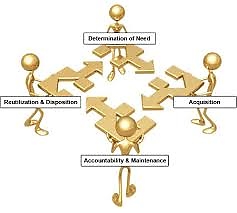What struck me after having our first few lectures within the minor Responsible Innovation is that most innovations are a direct response to demand. Engineers and innovators look for holes in the market or already existing products that need improvement. That is why forward-looking responsibility carries such high importance when considering new innovations. The idea behind new products or systems is that they exceed their predecessor in order to benefit society. What we were taught in the first week of this minor is the importance of ethics and morality within this continuously changing world of innovation. At first I had trouble comprehending the importance of applied ethics when creating new innovations, especially the weight that was given to this topic by making it the first topic that we were brought into contact with. Personally I believed the real trouble lay within the world of technicalities, where the right techniques are not yet in our reach to realize universal goals such as the UN Millennium Goals and the EU’s Grand Challenges. Truth be told we were taught that you cannot rank specific elements of the puzzle. Instead you need all the necessary elements, whether it comes down to technique or moral responsibility, in order to give power and legitimacy to an innovation that might benefit the world. To put these ideas into context we were asked to ponder about the issue of refugees, and to consider the individual and collective responsibility that this problem introduces. I found it quite compelling that we were able to give current world issues a place within the framework of this minor, and test the existing angles to approach problems that require innovation.
The idea of linking technology with a sense of morality is crucial when new ideas are tested and introduced in society. This brought forth the issue of moral overload, a notion explaining the struggle in finding the perfect balance between privacy, sustainability, efficiency, security, and accountability amongst many other values. If no one can be held accountable for new technologies, we clearly miss a framework in which to operate and improve our innovations. The example of ‘the problem of the many hands’ gave a good picture of a constantly occurring problem regarding responsibility. It is for this reason that the importance of ethics should not be undervalued, when it comes down to new innovations in our society. Technology by itself is not sufficient to create the world that we are working for, by slowly improving every necessary building block. It is the strength of responsibility that allows us to realize new technologies. In my eyes the innovations that arise when faced with difficult truths are the most intriguing ones, seeing as innovating is all about looking forward instead of taking a backward-looking responsibility approach.
After being faced with the true importance of ethics and morality in the creation of new innovations, I understood why this was the first topic to be addressed. Engineers, designers and innovators have to take into account each other’s work in order to prevent unnecessary accidents, which would result in the search for moral responsibility amongst its participants. needed to reach the universal goals that we create. Whether it is the designer drawing out the plan, the engineer creating the machine, or the person using the final product, accountability will never lose its importance.
